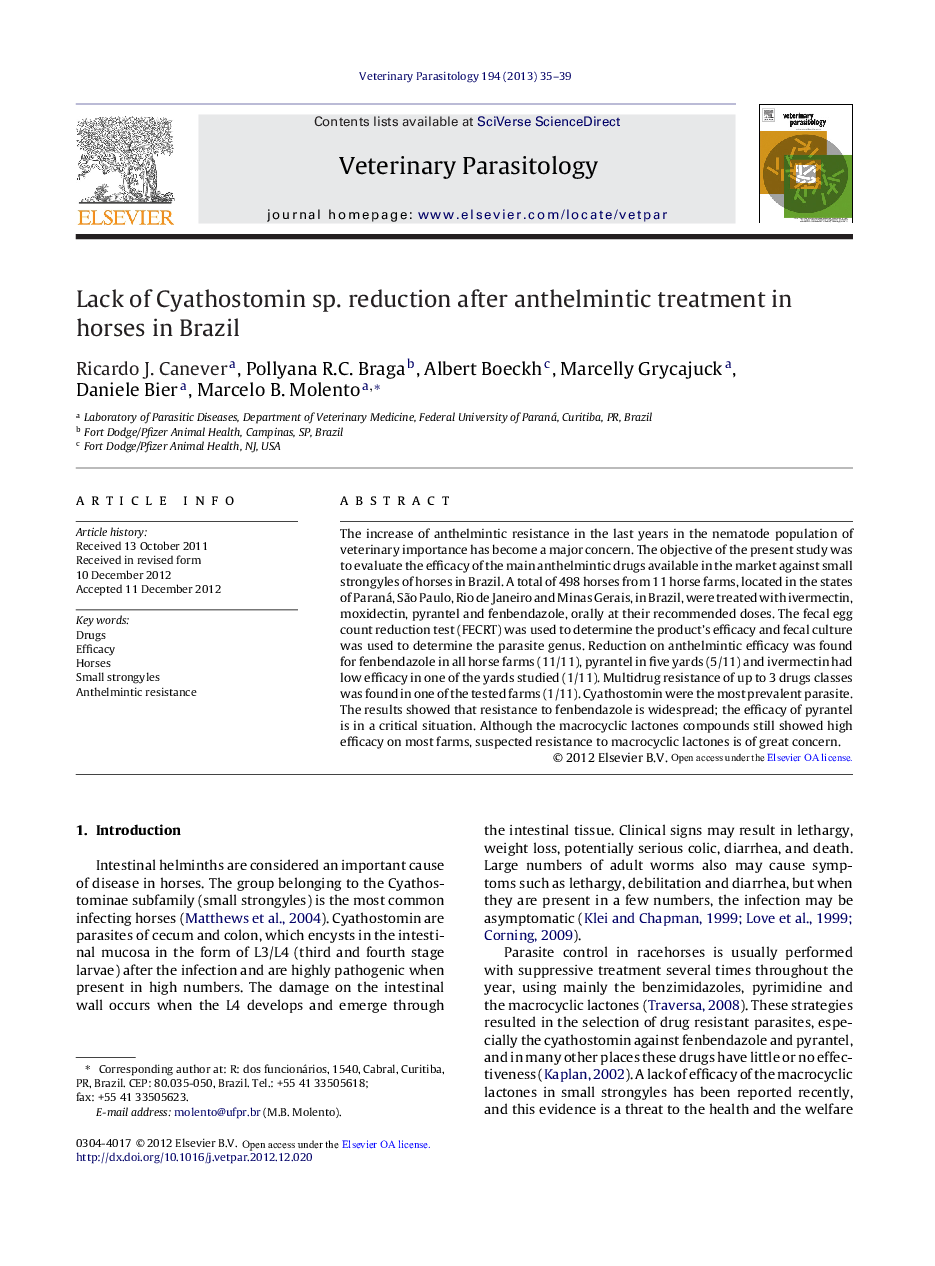| Article ID | Journal | Published Year | Pages | File Type |
|---|---|---|---|---|
| 5804069 | Veterinary Parasitology | 2013 | 5 Pages |
The increase of anthelmintic resistance in the last years in the nematode population of veterinary importance has become a major concern. The objective of the present study was to evaluate the efficacy of the main anthelmintic drugs available in the market against small strongyles of horses in Brazil. A total of 498 horses from 11 horse farms, located in the states of Paraná, São Paulo, Rio de Janeiro and Minas Gerais, in Brazil, were treated with ivermectin, moxidectin, pyrantel and fenbendazole, orally at their recommended doses. The fecal egg count reduction test (FECRT) was used to determine the product's efficacy and fecal culture was used to determine the parasite genus. Reduction on anthelmintic efficacy was found for fenbendazole in all horse farms (11/11), pyrantel in five yards (5/11) and ivermectin had low efficacy in one of the yards studied (1/11). Multidrug resistance of up to 3 drugs classes was found in one of the tested farms (1/11). Cyathostomin were the most prevalent parasite. The results showed that resistance to fenbendazole is widespread; the efficacy of pyrantel is in a critical situation. Although the macrocyclic lactones compounds still showed high efficacy on most farms, suspected resistance to macrocyclic lactones is of great concern.
